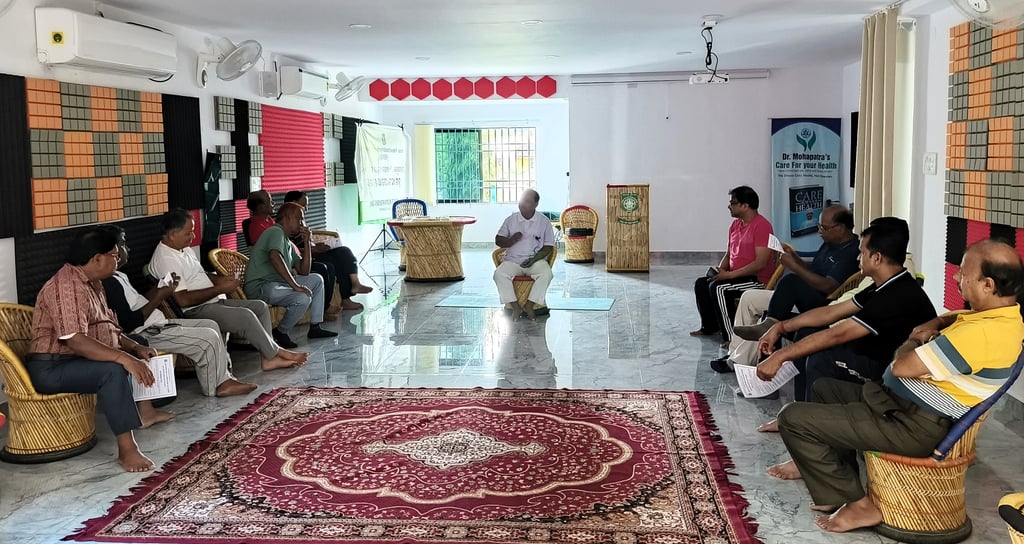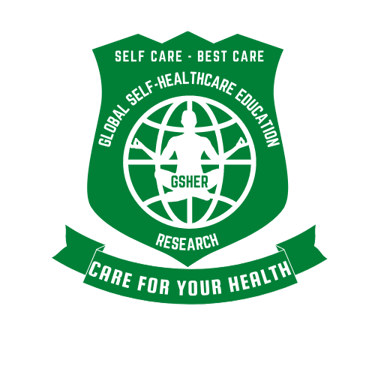The Prevalence of Informal Health Education and the Need for Formal Integrated Self-Healthcare Education, pioneered by GSHER'S ‘NO PRESCRIPTION POINT’.
ଅନୌପଚାରିକ ସ୍ୱାସ୍ଥ୍ଯ ଶିକ୍ଷାର ପ୍ରସାର ଏବଂ ଆନୁଷ୍ଠାନିକ ସମନ୍ୱିତ ସ୍ୱୟଂ-ସ୍ୱାସ୍ଥ୍ଯ ସେବା ଶିକ୍ଷାର ଆବଶ୍ଯକତା, GSHER ର 'ନୋ ପ୍ରେସକ୍ରିପସନ୍ ପଏଣ୍ଟ' ଦ୍ୱାରା ଅଗ୍ରଣୀ |
Dr Biswajit Mohapatra
9/7/20243 min read


In today’s interconnected world, health knowledge is more accessible than ever before. People gather health information from social media, YouTube, health blogs, wellness influencers, and conversations with family and friends. This informal education has empowered individuals to take charge of their health, but it has also created a space where misinformation, half-truths, and unsound advice often thrive.
While informal health education plays a role in raising awareness about health issues, it is limited by its lack of structure, depth, and reliability. Most people pick up bits and pieces of knowledge from these sources, leading to an incomplete understanding of essential health topics. For instance, many individuals learn about specific diets, exercise trends, or home remedies without understanding the broader context of how these fit into a balanced lifestyle or how they may interact with existing health conditions.
This incomplete knowledge often leads to misguided decisions, such as self-diagnosing illnesses based on online symptom checkers or adopting fad diets that promise quick results but lead to long-term harm. The overwhelming amount of health information online also leaves people confused about what’s truly beneficial or harmful, further complicating their efforts to make informed choices.
Why does GSHER insist on the need for Formal Health Education for common people?
To combat the shortcomings of informal health education, there is an urgent need for formal health education systems that provide scientifically sound, self care, and structured learning. Formal health education ensures that people receive accurate and evidence-based information about their bodies, common diseases, prevention strategies, and healthy living practices. This knowledge empowers individuals to make informed decisions about their health, seek professional care when necessary, and adopt preventive measures to avoid lifestyle-related diseases.
Here are some key reasons why formal health education is essential:
1. Clarity and Accuracy: Formal education teaches foundational concepts like cellular health, body physiology, nutrition, and mental well-being based on scientific research. This helps clear up common misconceptions, allowing people to navigate health information with a critical mind and a strong understanding of facts.
2. Disease Prevention: With the rise of chronic conditions such as diabetes, hypertension, and obesity, preventive health education has become more critical than ever. Educating people about healthy lifestyle choices—such as balanced diets, exercise, stress management, and the importance of sleep—can drastically reduce the prevalence of these conditions.
3. Health Literacy: A structured curriculum ensures people develop health literacy, allowing them to understand medical information, prescriptions, and health systems. This reduces dependency on unreliable sources and promotes a proactive approach to personal health management.
4. Empowerment Through Self-Care: Formal health education programs equip individuals with the tools they need to practice self-care effectively. They learn how to monitor their health, manage minor conditions, and recognize when professional medical help is necessary. This self-reliance is crucial in improving overall public health.
5. Bridging Health Gaps: Formal health education can bridge the gap in underserved populations, especially in rural areas where access to healthcare professionals may be limited. It can equip individuals with basic knowledge of first aid, preventive measures, and the importance of hygiene, significantly reducing the burden on healthcare systems.
GSHER's No Prescription Point: A Solution
While informal health education continues to raise awareness about health topics, its limitations underscore the need for structured, formal health education programs. These programs allow individuals to learn the essential facts about their bodies, diseases, and preventive care strategies, empowering them to make informed decisions. By promoting widespread health literacy through Self-Healthcare Educators, we can not only improve individual health outcomes but also contribute to the well-being of society as a whole.
In an era where health and wellness have become priorities, it’s time we formalize Self-Healthcare Education for everyone, making it a cornerstone of Personal Health efforts.
Be part of the movement.
Dr. Biswajit Mohapatra, MS, FMAS
Chairman, GSHER
